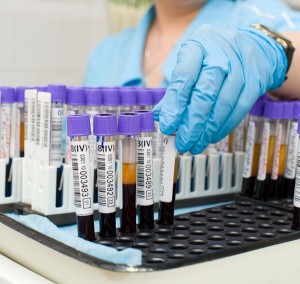 A recent study by Northwestern University confirmed what many Urologists had been seeing the last several years. This study revealed that metastatic (incurable) prostate cancer has increased by more than 90 percent since 2004 in patients age 55-69. In my view, these alarming numbers are due in part to a very unfortunate recommendation made by the United States Preventative Services Task Force (USPSTF) in 2008 that advised doctors to cut back on prostate specific antigen (PSA) screening.
A recent study by Northwestern University confirmed what many Urologists had been seeing the last several years. This study revealed that metastatic (incurable) prostate cancer has increased by more than 90 percent since 2004 in patients age 55-69. In my view, these alarming numbers are due in part to a very unfortunate recommendation made by the United States Preventative Services Task Force (USPSTF) in 2008 that advised doctors to cut back on prostate specific antigen (PSA) screening.
In the urology community, we continue to be very concerned about these recommendations because we feel that PSA screening is the main reason death due to prostate cancer has dropped so dramatically in the preceding 15 years. It looks like our fears are well founded, though others in the medical field, particularly some oncologists, disagree, citing the limitations of the PSA test.
For me, this sharp rise in fatal diagnoses is not merely a statistic. In my practice at Urology Associates in Denver, I treat prostate cancer patients every day. To see the incidence of such cancers rising rather than falling is distressing.
PSA (prostate specific antigen) is a protein produced in the prostate gland. Although not specific for cancer, it can indicate the presence of cancer cells long before the patient experiences symptoms. The PSA marker has been one of the most revolutionary discoveries in men’s health, and we should embrace it not banish it.
Before early detection of prostate cancer with a PSA test was possible, a prostate cancer diagnosis was often made at a late stage with a 5 percent cure rate. The PSA exam helped improve the cure rate to 80-90 percent.
PSA testing is simple. A small blood sample is drawn and sent to a laboratory. Results are reported in a ratio of nanograms of PSA for every milliliter of blood. Interpretation of the PSA level includes age-adjusted numbers as well as monitoring the rate of PSA rise in a given period of time. Urologists are most familiar with the norms and should be consulted with any concerns. If your PSA is abnormal, a biopsy ultimately can confirm whether or not you have prostate cancer.
 Interestingly, the USPSTF’s panel that changed the guidelines for PSA testing was comprised of 16 volunteer clinicians including family physicians, general internal medicine physicians and pediatricians. Notably absent on the panel were urologists, who specialize in prostate cancer screening, diagnosis and treatment.
Interestingly, the USPSTF’s panel that changed the guidelines for PSA testing was comprised of 16 volunteer clinicians including family physicians, general internal medicine physicians and pediatricians. Notably absent on the panel were urologists, who specialize in prostate cancer screening, diagnosis and treatment.
Before the recommendations of the USPSTF, urologists were already moving towards surveillance of slow growing cancer which may not need aggressive treatment. Active surveillance of cancer can be a good option for many men with very early stage prostate cancer. Unfortunately, with the guidelines that reduce PSA testing, more aggressive cancers are not being identified early enough to allow treatment when necessary. In our opinion, the USPS TF recommendation against PSA screening has done a great dis-service to men who, by nature, tend to be fearful of prostate evaluations in the first place.
When changing the PSA screening guidelines, USPSTF should have clarified and recommended that all men, no matter their risk of prostate cancer, be under the treatment of a urologist when it comes to prostate health. The American Urologic Association and Urology Associates currently recommend prostate exams and PSA testing in low-risk individuals every other year from ages 55-69. Higher risk patients include African Americans and those with family history of prostate cancer. These men should be offered screening as early as age 40. Men above the age of 70 are candidates to continue prostate cancer screening after discussing the risks and benefits of screening with their physician.
While the PSA is not perfect, it remains an important screening tool. The best step you can take toward proactive prostate health is to have an active and engaged relationship with your physician so you can understand all the implications of the PSA – and what you will do with the results once you have them.
Dr. James E. Fagelson is a practicing urologist at Urology Associates in Denver, CO. He is board certified in urology and a Fellow of the American College of Surgeons. He is committed to minimally invasive treatments for all urologic diseases. Dr. Fagelson’s goal is to treat patients in a compassionate manner and understand all aspects of a patient’s diagnosis and treatment. If you are interested in learning more about Dr. Fagelson and Urology Associates, visit them online at denverurology.com or call them at 303-733-8848.
